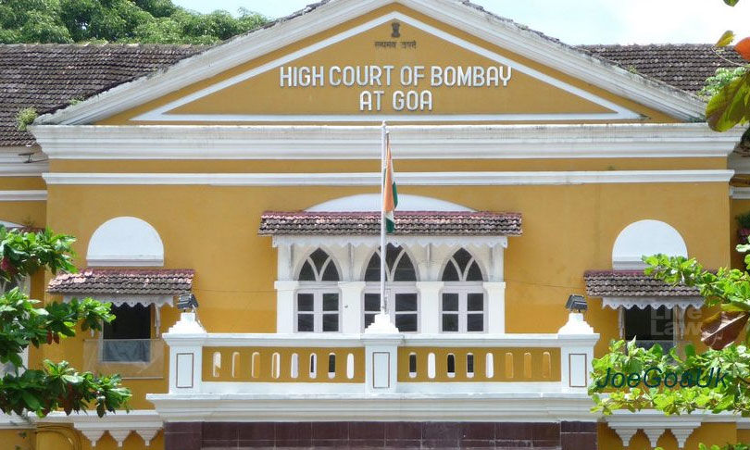- Home
- /
- High Courts
- /
- Bombay High Court
- /
- Reassessment Can't Be Based On...
Reassessment Can't Be Based On Reasons Borrowed From Other Dept. Or Justice M.B. Shah Commission Report: Bombay High Court
Mariya Paliwala
30 April 2024 7:22 AM GMT
The Bombay High Court has held that the reasons for reopening clearly show that the assessing officer, except borrowing the information from the third report of the Justice M.B. Shah Commission, failed to record independently to his own satisfaction any reason so as to direct the reopening of the assessment. The bench of Justice Bharat P. Deshpande and Justice Valmiki Menezes did not see...
The Bombay High Court has held that the reasons for reopening clearly show that the assessing officer, except borrowing the information from the third report of the Justice M.B. Shah Commission, failed to record independently to his own satisfaction any reason so as to direct the reopening of the assessment.
The bench of Justice Bharat P. Deshpande and Justice Valmiki Menezes did not see any reason for independently forming opinions by the Assessing Officer, apart from what was borrowed from the Justice M.B. Shah Commission report. Thus, reasons that do not have any application to the mind or any independent material or reason to believe cannot be construed as legal reasons for re-opening the assessment.
The petitioners and assessees challenged the notice under Section 148 of the Income Tax Act on the ground that there is reason to believe that the income of the petitioner chargeable to tax for the assessment year 2011–12 has escaped assessment within the meaning of Section 147 of the Income Tax Act. The reasons for reopening are found along with the letter dated January 4, 2016. There are a total of five reasons disclosed.
The first reason was under invoicing of export, wherein it is claimed that some new facts came to light regarding illegal extraction and export of iron ore and under invoicing and export of iron order extracted in the mines in Goa, in view of Justice M.B. Shah Commission's Inquiry Report.
The second reason was that the income arising from illegal activities is to be assessed as income from other sources. Again, this ground is raised on the basis of the observation of the Apex Court holding that the mining leases in Goa expired on November 22, 2007. Consequently, activities beyond November 22, 2007 were illegal, and thus income derived for the financial year 2010–11 relevant for assessing 2011–12 cannot be considered legitimate business income.
The third ground was that the income has escaped assessment for failure on the part of the assessee to disclose fully and truly all material facts necessary for his assessment. Again, for this ground, the report of the Justice M.B. Shah Commission is referred, claiming that several consignments of the assessee were found under invoice, and this information has been suppressed. Further, it is observed that the activities beyond November 22, 2007 were illegal, and since then, such activities have continued with impunity without disclosing that the assessee was indulged in illegal activities.
The fourth reason was again based on the Shah Commission's report and, more particularly, the illegal activities beyond 2007.
The fifth reason was regarding the under invoicing and export of iron ore to the extent of commission paid to the foreign agents.
The assessee contended that, at most, the lease could be considered illegal beyond November 2007. However, the activities continued until the decision passed by the Supreme Court on the premise that there is provision for renewal of leases, which cannot be termed illegal activities. The activities were carried out in the normal course of business, and even the petitioners paid royalty for the extracted minerals. There was no independent inquiry conducted by the assessing officer to come to the conclusion, which is the mandate.
The department contended that, apart from the reasons for re-opening, which clearly disclose tangible material and are properly considered by the assessing officer, no interference is warranted. The petitioner would get an opportunity to produce the relevant material once the assessment is reopened.
The court held that there is absolutely no reasoning as to how such information is having a live link or being considered tangible material for the purpose of opening the assessment. The Assessing Officer failed to record his own independent opinion and, more specifically, how the invoicing and payment of the agent's charges affected the actual income shown by the assessee in the original returns. This reason clearly demonstrates that the material was simply borrowed from the Directorate of Revenue Intelligence (DRI), Mumbai authorities, and pasted into the reasons without any further reasoning.
“We hold that the impugned re-opening notices and the orders passed rejecting the objection need interference and are required to be quashed and set aside. Accordingly, we allow the petitions by quashing and setting aside the notices as well as the orders rejecting objections filed by the petitioners,” the court said.
Counsel For Petitioner: Percy Pardiwala
Counsel For Respondent: S. Linhares
Case Title: Balaji Mines And Minerals Pvt. Ltd. Versus The Assistant Commissioner Of Income Tax
Case No.: Writ Petition No.262 Of 2016


